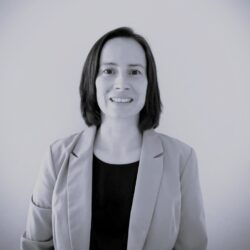The Düsseldorf Institute für Internet and Democracy is preparing a special issue on “Political Online Participation and its Effects: Theory, Measurement & Results”, combined with a workshop in Düsseldorf on 19 & 20 November 2018. We invite contributions from all disciplines focusing on measuring the effects of using the Internet for engaging citizens. Please see the Call for Extended Abstracts for further details. Deadline for submission of abstracts is 27 August 2018.
Contact
Jun.-Prof. Dr. Tobias Escher
Board, Computer Science, Political Science, Sociology

Tobias Escher leads a BMBF-funded junior research group investigating the effects of participation processes on the quality and legitimacy of political decisions, especially in the context of the transformation to sustainable mobility in the local context. Previously, he supervised the DIID as well as the NRW Forschungskolleg Online-Partizipation at the HHU-Düsseldorf as scientific coordinator. He is a social scientist and holds a PhD from the Oxford Internet Institute at the University of Oxford. He can also draw on his basic knowledge of computer science when assessing the possibilities and limits of digitization.
His research focuses on the evaluation of political participation online and offline. In particular, he addresses the question of the extent to which citizen participation contributes to higher quality and legitimacy/acceptance of political decisions. He has developed a teaching module on the theory and practice of online participation, from which, among other things, a project on student participation in teaching has emerged.
Photographer: ©Tilman Schenk
Projects
Contact
Dr. Katharina Gerl
Political Science

Dr. Katharina Gerl has been a research assistant at DIID at HHU-Düsseldorf since 2016. She studied Political Science (B.A.) at the University of Bremen and Political Communication (M.A.) at HHU-Düsseldorf. For her dissertation at the Chair of Political Science II at Heinrich Heine University, she studied the impact of digital media on political parties as organizations.
Her research interests lie in the areas of effects and acceptance of digital democratic innovations in politics and administration as well as of artificial intelligence for political opinion-forming and decision-making.

